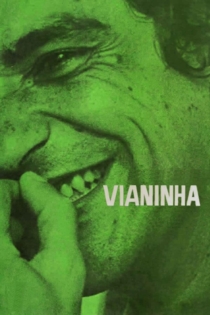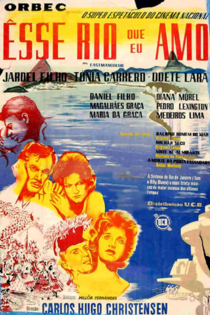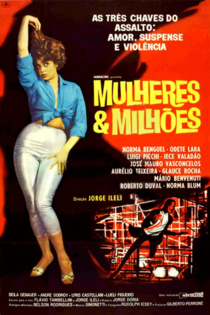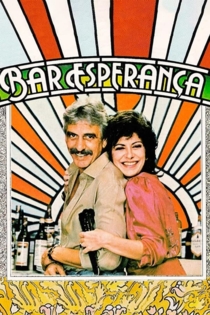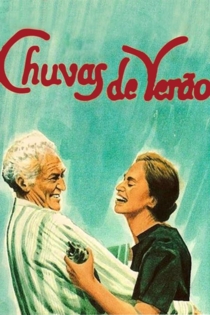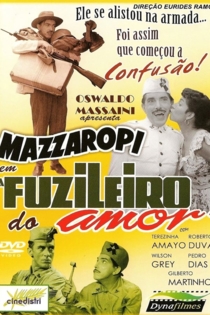
Daniel Filho
1937 (88 лет)Paulo Gracindo - O Bem Amado
Gracindo Júnior
Paulo Gracindo, Gracindo Júnior
The life of a famous Brazilian film and television actor, including testimonials from people who knew him and worked with him, as well as excerpts from films and videos in which he acted.
Paulo Gracindo - O Bem Amado
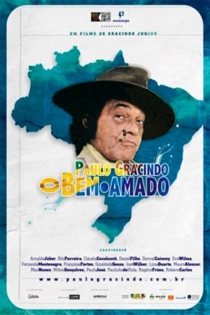
O Homem Que Engarrafava Nuvens
Lírio Ferreira
Caetano Veloso, Maria Bethânia
A host of personalities reminisce about the life and work of songwriter, lawyer, and congressman Humberto Teixeira — aka "Baião Doctor" — the author of such classic Brazilian popular songs as "Asa Branca". A musical film about the baião, a movement in Brazilian music in the 1940s and 1950s that was later snowed under by samba and bossa nova.
The Man Who Bottled Clouds
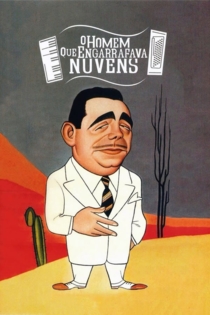
Golden Mouth
Nelson Pereira dos Santos
Jece Valadão, Odete Lara
For his first in a long series of wildly imaginative literary adaptations, dos Santos reinvented Nelson Rodrigues' novel about a pathological gangster with solid gold teeth and a voracious appetite for women and power. Embracing radically modernist narrative techniques, Golden Mouth offers a splintered, refractive portrait of brutal masculinity that returns repeatedly to the same moment from different vantages, each time revealing unexpected perspectives on the brutal yet strangely charming criminal. Lurid and disturbing, Golden Mouth delivers a savage satire of marriage and class pretensions, revealing a similar venality at the corroded heart of the sanctimonious bourgeoisie, the moneyed elite and the working class as they all mercilessly claw their way up and down the rickety and ruthlessly hierarchical Brazilian social ladder. -Harvard Film Archive
Golden Mouth
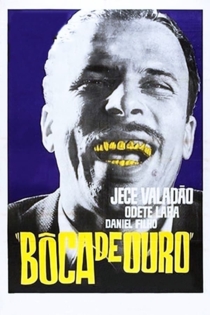
Crítico
Kleber Mendonça Filho
Aki Kaurismäki, Alain Riou
Seventy critics and filmmakers discuss cinema around the conflict between the artist and the observer, the creator and the critic. Between 1998 and 2007, Kléber Mendonça Filho recorded testimonies about this relationship in Brazil, the United States and Europe, based on his experience as a critic.
Crítico
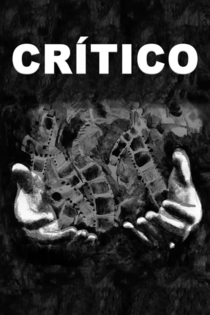
The Asphalt Kiss
Bruno Barreto
Ney Latorraca, Christiane Torloni
When a pedestrian is hit by a bus, the simple clerk Arandir runs and kisses the moribund in a gesture of sympathy and unconditional pure love. Opportunist photographer Amado Pinheiro witnesses the scene and sees the opportunity to sell newspaper and, together with the despicable and abusive chief of police Cunha, accuses Arandir of homosexuality.
The Kiss
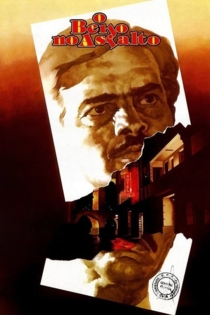
As Quatro Chaves Mágicas
Alberto Salvá
Dita Côrte-Real, Daniel Filho
Sad with her grandfather's death, Maria goes on vacation with her friend João on board a jeep. After being threatened by three thieves and helped by a Japanese traveler who opens their eyes to the mysteries of love, a pair gets lost in the forest and ends up at the home of a strange woman, who turns out to be a powerful witch Astarte. Realizing the danger they are in, Maria asks for help from the forest beings who teach her the secrets of the four magic keys: earth, air, fire and water. With these teachings, Maria leaves for the final confrontation against Astarte.
As Quatro Chaves Mágicas
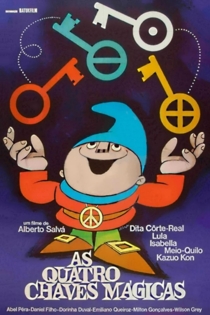
The Unscrupulous Ones
Ruy Guerra
Norma Bengell, Jece Valadão
Upon learning that his rich dad is on the brink of bankruptcy, spoiled Vavá summons his friend Jandir with a plan to get some quick cash: they will blackmail an uncle of Vavá by taking compromising photos of his lover, Leda.
The Unscrupulous Ones
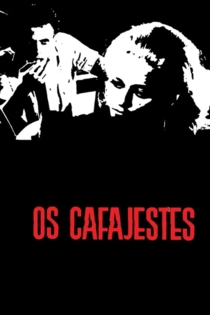
Vida, Vida
Domingos de Oliveira
Antônio Fagundes, Lenita Plonczinski
In Rio de Janeiro, a successful yet underpaid young accountant lives with his pregnant wife in small apartment in middle class neighborhood of Copacabana. Unsatisfied with their way of life, the couple decides to accept the offer of becoming housekeepers of a rich man's vacation residence in a beach town.
Vida, Vida

